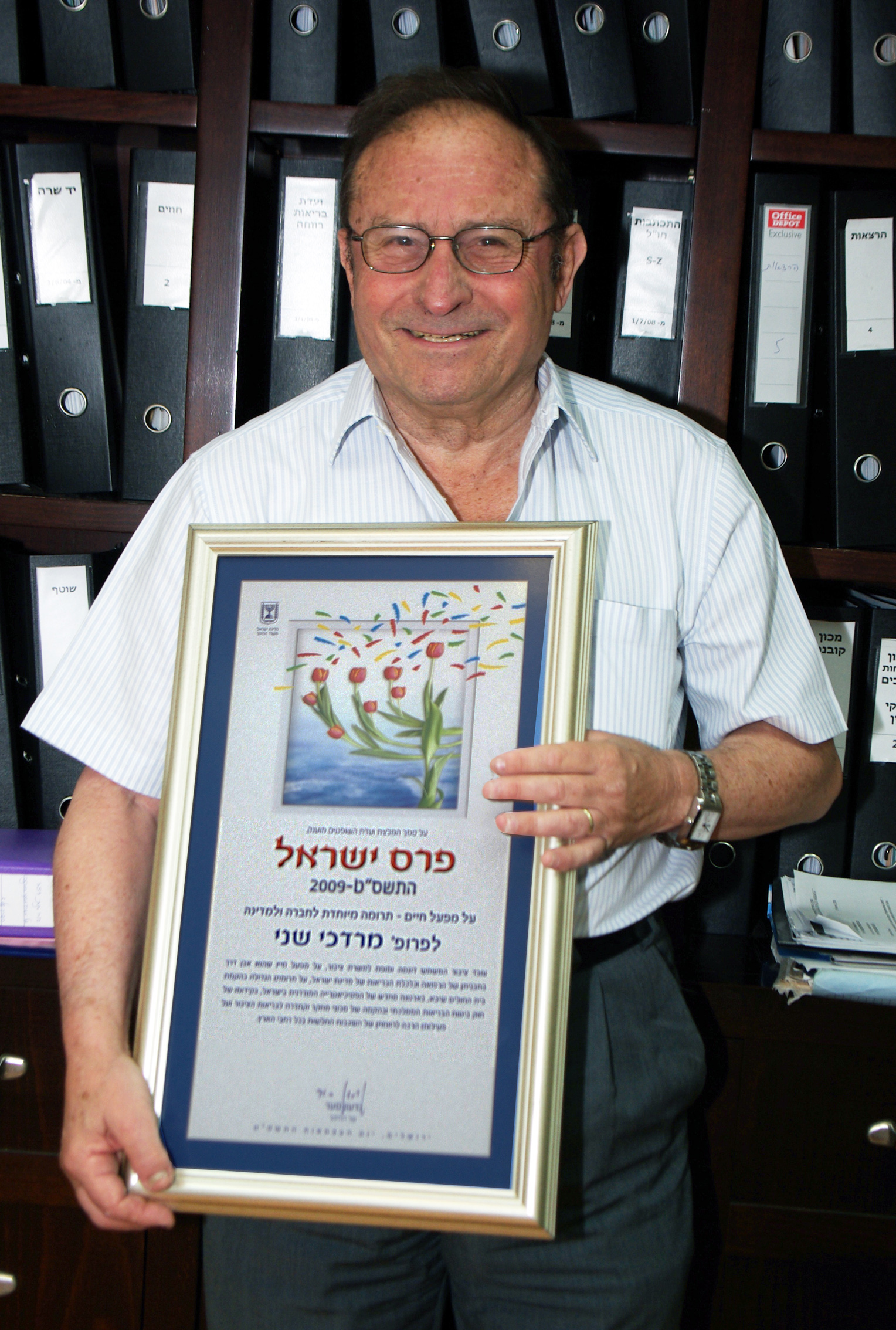Sheba@70: A Brief History as told by Prof. Mordechai Shani
Even before he began his tenure as Sheba Medical Center's 2nd Director General, a young and dynamic Dr. Mordechai Shani worked under the tutelage of Professor Chaim Sheba, who founded the hospital during Israel's War of Independence in 1948. During his tenure as Sheba's 2nd Director General (1971-2004), Prof. Shani was instrumental in transforming the hospital facility from a series of military barracks into a modern, cutting-edge medical campus that is renowned not only in Israel, but around the world. Though he "retired" from running the day-to-day operation of the hospital in 2004, Prof. Shani has maintained a vigorous schedule at Sheba, where he is involved in many different projects.
"When I came to Sheba in June 1966, I worked as a doctor, specializing in treating genetic diseases associated with Persian and Moroccan Jews. Shortly thereafter, I started working in Internal Medicine. At that time, the hospital's patients were still being taken to the old army barracks to recuperate from surgical procedures," Prof. Shani recalled.
When Prof. Sheba passed away in 1971 and Prof. Shani suddenly inherited his mantle, he realized that the hospital desperately needed to transform itself into a modern medical center to meet the needs of the fast-growing Jewish State. "It was quite a challenge at age 33 to step into the shoes of one of the greatest people of Israel," Prof. Shani admitted.
However, over the span of four decades, Prof. Shani had a direct hand in not only shaping the hospital's physical structure but also recruiting the top doctors in the country.
Prof. Shani described the key turning points:
"In 1971, it was understood that we needed to build a modern hospitalization tower, in several phases, and create a one-of-a-kind facility rarely found in the world, where all patient services would be provided on one campus — from acute care to rehabilitation. This would include everything from surgical and neurological to physical, psychiatric and geriatric rehabilitation. My philosophy has always been never to stand in one place but always continue to develop."
After the hospitalization tower, which was named after British philanthropist Charles Clore, had been completed in the late 1980's, the other sections of the campus were built one after the other. Sheba Medical Center went from 900 beds in 1971 to over 1800 beds in 2018.
The campus is home to an acute care hospital, women's center, children's hospital and one of the largest rehabilitation hospitals in the world (800 beds).
"The hiring of Dr. Bruno Lunenfeld as head of the hospital's Endocrinology Department in the 1960's gave a tremendous boost to the medical center's ability to deal with a variety of women's issues ranging from the introduction of hormone treatments for sterile women, which eventually led to in-vitro fertilization treatments and the first Israeli 'test-tube' baby born at Sheba in 1982."
Sheba's "Fertility & Maternity" Center's specialists have been touted By Forbes Israel magazine as the best in their fields.
"In the 1970's, Prof. Padeh, was considered a pioneer in the field of what was then called cytogenetics. Prof. Chaim Sheba brought him to the hospital because, Sheba himself was very interested in the genetic origins of the Jewish communities that immigrated to Israel. Prof. Padeh was the one who pioneered studies into ethnic genetic diseases such as Familial Mediterranean Fever, Tay-Sachs and others. His work laid the foundation for the Danek Gertner Institute of Human Genetics, which is considered to be one of the best in the world."
"During the 1970's, I also realized that geriatrics represented a lucrative opportunity in the future of medicine. Social aspects force you to change and you must listen to people when they identify new trends in the world. I 'stole' Dr. Marian Rabinowitz away from another hospital in Jerusalem to help create our planned geriatric and rehabilitation facility in the 1980's, which has become one of the very best in the world. We also house a hospice, where we provide first-class care, allowing people to live out their final days in dignity."
Prof. Shani remains firmly committed to his work at Sheba because, "I feel like I had an obligation to Chaim Sheba who was like a second father to me and changed my life." He is also proud of the many doctors he brought to Sheba and in assisting them in creating "empires".
"If you want to create a world-class hospital, you need to find and cultivate its leaders!"









